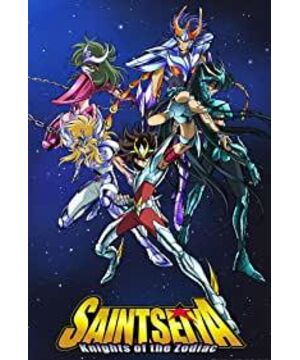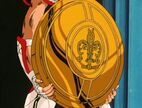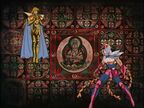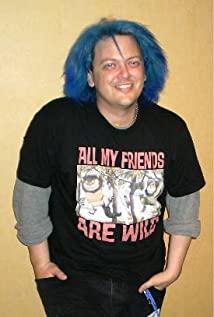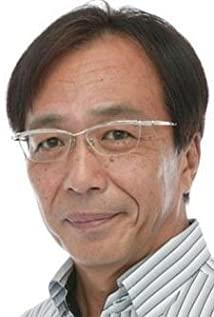1. In the animation, the children sent by the City House Foundation to receive the training of Saint Seiya all over the world are orphans collected from all over the world, which changed the setting of the sacrifice of Baizi in the original work, which actually seriously weakened the spirit of the original work. In the original work, after accepting Saori as a baby from Aoiros, Shiroto Kosama once asked God angrily: "God, why did you choose to give me the golden holy garment and this child? God , Did you send Athena to me because I had a hundred sons? Do you mean that you want me to imitate Abraham in the Old Testament and offer a hundred sons to God as a sacrifice?" This plot setting is very meaningful. Instead of taking "Having a Hundred Sons" as a realistic plot setting, it is more appropriate to regard it as a religious fable. At the same time, this also explains why Daai encounters the ability to protect Saori and Shiroto Mitsurugi, who prepared everything for her to return to the sanctuary, in other words, whether Shiroto Mitsurugi, Daai, or even Saori herself, are all individuals controlled by their own destiny, which is also in line with The strong fatalism complex in the original work.
On the other hand, in the Bible, God asked Abraham to offer his son Isaac as a sacrifice to God, which was against ethics, but Abraham still obeyed. What is conveyed here is a concept of obedience that is different from Greek mythology and closer to Christianity: the characters in Greek mythology always rebel against fate, but ultimately fail; and Christian obedience is the real obedience, That is, unconditional obedience to the power of God, which has nothing to do with belief, because obedience out of belief is not real obedience, because such obedience has been mediated by the subjectivity of the believer, Kierkegaard once wrote, It would be terrible blasphemy if we believed in Christ because he was wise and good. In order to expand the audience, the animation deleted the somewhat obscure plot of the original work, and changed the origin of one hundred orphans to be easy to understand, but it also lost the textual depth of the original work accordingly.
2. If you want to say that the bad-minded person in the Golden Saint Seiya is the first to push Kamuy, he can teach himself to death if he teaches an apprentice. There are a lot of masters and apprentices in the Saint Seiya, and I have never seen anyone who taught the apprentice so hard-hearted. Next is Aphrodite.
3. Why do you say that Aphrodite's brain is not good, he should pull Dismask and Shura out and say it together. As the three villains in the Zodiac Arc, these three have their own reasons for following Saga: Dismask's reason is "the final winner is justice", Shura's reason is "only one can play his own way" Only those whose strength wins the final victory are qualified to be called just." Aphrodite's reason was much simpler, and he directly shouted the slogan "Strength is Justice". The three people's reasons seem similar, but there are subtle and decisive differences.
Dismask and Shura can be regarded as one kind, their view of justice is very pragmatic, that is, "victory is justice", as long as Saga can defeat Athena in the end, then Saga is just, which is very similar to a related tower. Talleyrand's joke, saying that Talleyrand was eating with his friends, and suddenly heard the sound of firefighting from the street outside, Talleyrand said: "We will win." The friend asked: "Which side are we?" Talleyrand replied : "Tomorrow we'll know, and tomorrow we'll know who wins." For Dismask and Shura, "justice" is an empty signifier sliding on a chain of signifiers, and its meaning depends on the whole meaning The master signifier in the domain, so justice can only acquire its meaning retrospectively after the event, and can be woven into a new network of symbolic meaning by the new signifier symbol. Postmodernist view of justice. But Aphrodite is different. His justice has a clear direction. As long as Saga has the most powerful force in the Sanctuary, then he is just. This justice has nothing to do with the result. Even if Saga fails, he is just. of.
Compared with the pragmatism of Dismask and Shura, Aphrodite's choice appears to be very simple-minded, just like the King Gandharva in the Holy Tradition, who swore allegiance to him because of his worship of the power of Emperor Shitian, He did not hesitate to kill his favorite Soma, and then committed suicide with his love. It is conceivable that even if Aphrodite didn't die in Shun's hands, when he saw Saga defeat and commit suicide, he would probably choose to burn both jade and stone together (and It doesn't matter if you die for love, it belongs to the disillusionment after the collapse of the support of belief).
4. The roles of the twin brothers Saga and Garon are actually very strange.
Let's talk about Saga first. It is true that the dual personality represents the bright side and the dark side of a person's heart, but it is very doubtful whether he can recognize this. When people's id desires and superego morality confront each other, causing strong anxiety and guilt, a certain psychological defense mechanism will be triggered in people's consciousness to protect the self in a way that distorts reality to ease or eliminate anxiety A typical psychological defense mechanism is rationalization, that is, the ego will unconsciously justify unacceptable emotions, behaviors, or motives with plausible but in fact untenable reasons to make it acceptable to the heart. Specific to Saga, his dual personality can be roughly regarded as the confrontation between the id and the superego, then the question is, can he realize that he is "evil" when his dual personality is in a fierce confrontation what about?
The answer is clearly dubious. During the battle in the Pope's Hall of the Zodiac, there was another quarrel between Saga's good and evil personalities. At this time, Saga was being dominated by the dark personality. When he saw the Gemini Gold Saint Cloth Helmet crying, he shouted angrily: "What's wrong with controlling the world by people with power?" "If there is no power comparable to Neptune and Hades to govern the world, the world will perish" - this is the role of the psychological defense mechanism: Saga's dark personality ) does not think that it is wrong to kill the Pope to usurp the throne and attempt to kill Athena to seize the world domination. In his (dark personality) view, his actions are justified and are for the well-being of the world , in other words, he doesn't think he is "evil" at all - this is normal character behavior and psychology. In the previous confrontation between Saga's dual personalities, the dark personality has generously admitted that he is evil countless times, which is a bit unbelievable. This has nothing to do with schizophrenia or dual personalities, the important thing is that it cannot form a complete closed behavioral logic at all: if the dark personality does not rationalize his behavior, if Saga himself can clearly realize that his ambitions are "evil" , then the so-called dual personality confrontation does not hold at all - the good personality should have been eliminated long ago. For example, a good personality accuses a dark personality of being evil, and the normal reaction of a dark personality should be to justify his own behavior, rather than lie down and laugh at "I am evil, what can you do to me?" In other words, the author Using Saga's mouth to show that he is "a character intertwined with good and evil" is itself the author's perspective of God for the character, and this kind of psychology is simply untenable for the character.
The same problem also appears at the end of the Neptune. Not only does Gallen proudly declare that he has an evil heart, when Saga puts him in the sea prison, Gallen yells at him: "What's wrong with using your own strength to get what you want?"— It's relatively normal here - but when I turned my head to Kanen, I said "I will definitely lead you to evil", to be honest, I was a little confused when I saw this. Just as Hitler has stated many times bluntly that his or his party's purpose is to rule the world, he also often makes reasonable excuses for his desire for power, including but not limited to: he rules other peoples solely for the sake of their own and the interests of world culture; the thirst for power is an eternal law of nature, which he simply knows and obeys; his desire to rule others is only a defense against others ruling him and the German people; he also praises peace , but the premise is that "it must be possible when the best man first conquers the world and makes himself the sole master of this earth" - this is the normal psychology of a careerist who desires power and conquers the world.
5. Looking at Saint Seiya now, I just want to persuade Saori to rest, leave these stupid humans alone, and let them perish.
View more about Knights of the Zodiac reviews


